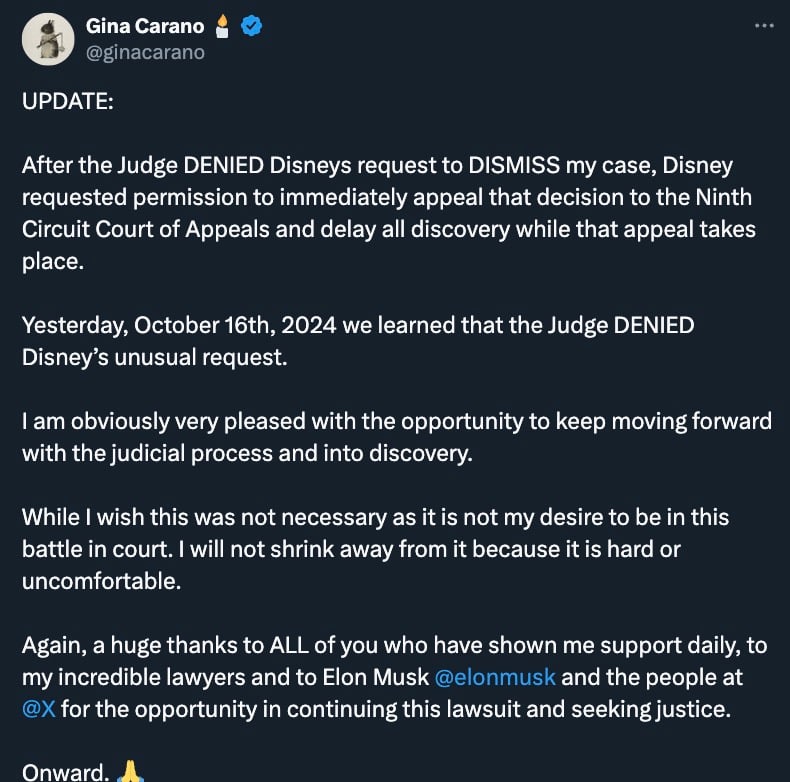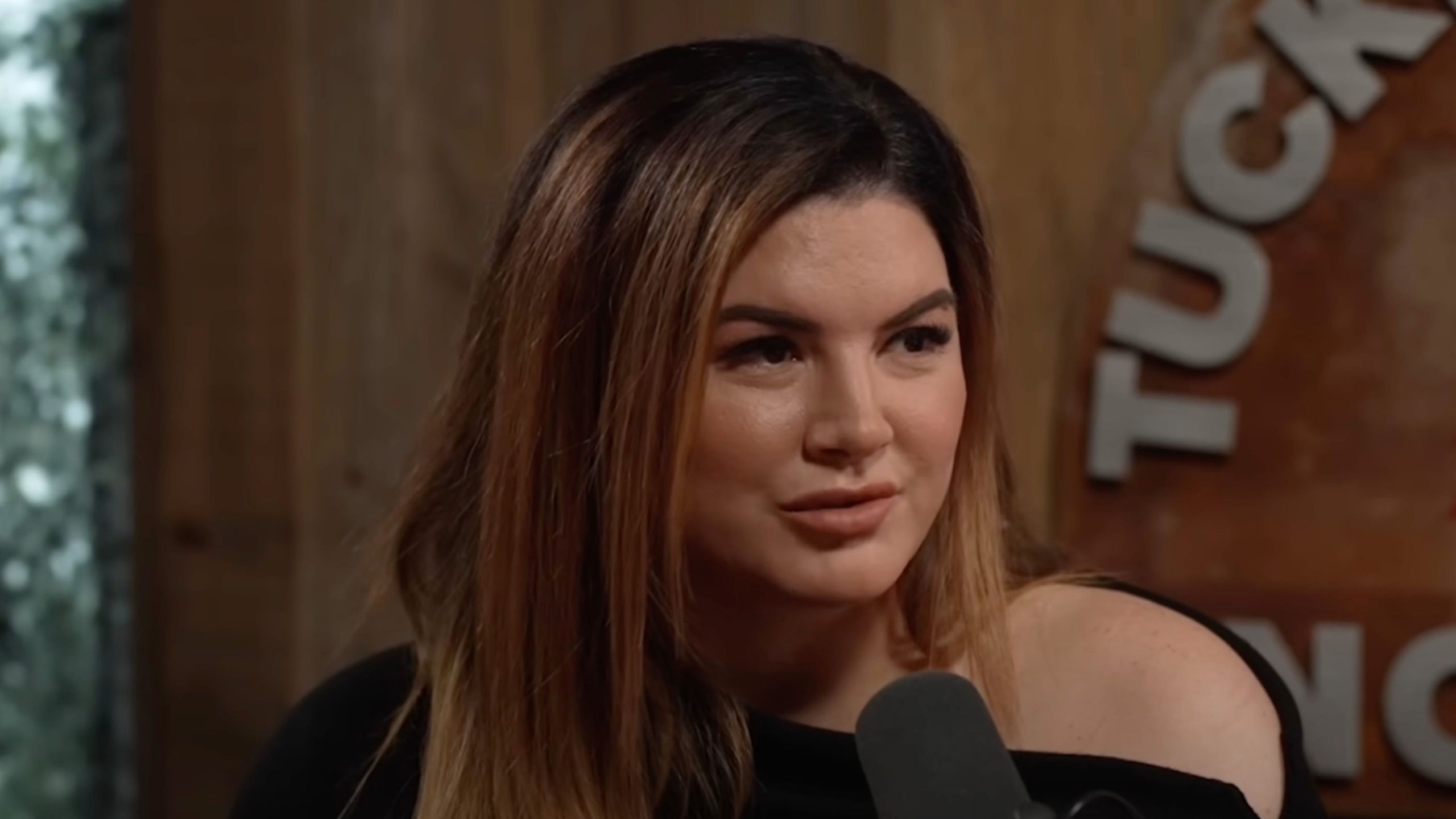A California judge has ruled against Disney, denying its request to appeal a July decision that allows Gina Carano’s wrongful termination lawsuit to proceed. Additionally, the request to pause discovery during the appeal was also denied.
Gina Carano took to her social media platform, X, to announce the decision: “After the Judge DENIED Disney’s request to DISMISS my case, Disney requested permission to immediately appeal that decision to the Ninth Circuit Court of Appeals and delay all discovery while that appeal takes place,” Carano posted. “Yesterday, October 16th, 2024, we learned that the Judge DENIED Disney’s unusual request.”
We obtained a copy of the order for you here.

Carano was dismissed from her role in “The Mandalorian” by Disney, who argued that her social media posts were against the company’s standards. This summer, Disney tried to get her lawsuit dismissed on these grounds, citing the Federal Rule of Civil Procedure 12(b)(6).
Carano shared her feelings about the ongoing legal process: “I am obviously very pleased with the opportunity to keep moving forward with the judicial process and into discovery. While I wish this was not necessary it is not my desire to be in this battle in court. I will not shrink away from it because it is hard or uncomfortable.” She also expressed gratitude for the support from her lawyers and the financial backing from Elon Musk and X, which are covering her legal fees.
Judge Sherilyn Peace Garnett of the US District Court for the Central District of California stated that cases generally cannot be appealed until after a court has delivered its final judgment. However, there are exceptions if certain conditions are met. Disney sought to appeal on the basis that an artistic entity’s First Amendment rights should allow it to control casting decisions to protect its artistic expression from actors who make public statements it deems offensive.
However, Judge Garnett concluded that Disney had not met the burden of proof necessary for an interlocutory appeal, which requires a controlling question of law, a substantial ground for disagreement, and a scenario where an immediate appeal could decisively impact the litigation’s resolution.












